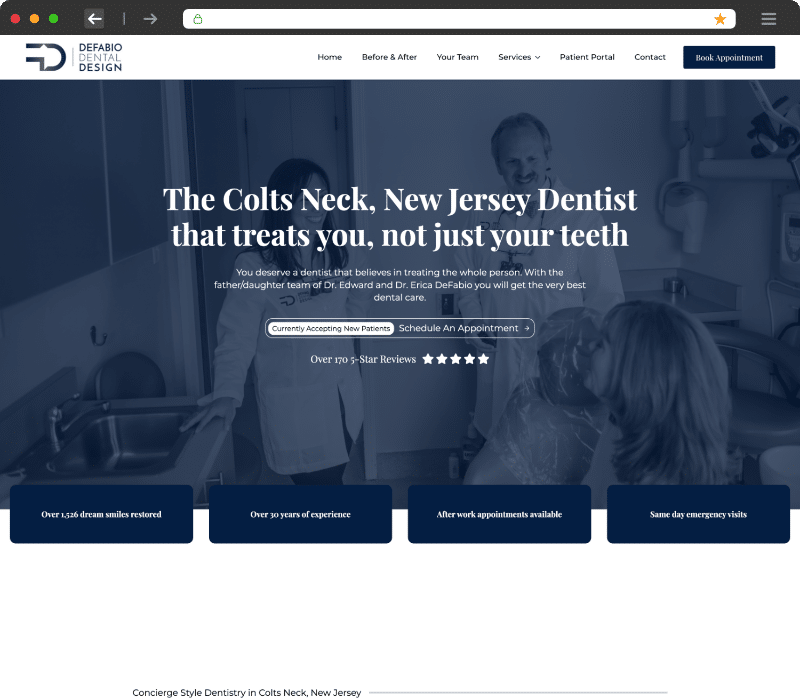Introduction
In the vast realm of digital marketing, search engine optimization (SEO) plays an indispensable role in ensuring your website stands out among the millions online. Among the various facets of SEO, technical SEO is often seen as the backbone of a robust digital marketing strategy. If you're new to this concept and wondering how it can enhance your web design and increase website conversions, you've landed at just the right place!
This guide will walk you through the nuances of technical SEO, elucidate its importance in local SEO and Google Maps SEO, and equip you with actionable strategies to elevate your site's performance. Let's dive into understanding technical SEO!
Understanding Technical SEO: A Guide for Beginners
Technical SEO refers to optimizing your website's infrastructure to make it easier for search engines to crawl, index, and render your site effectively. This isn't about content or backlinks; rather, it deals with aspects like site speed, mobile-friendliness, security protocols, XML sitemaps, and more.

When executed correctly, technical SEO ensures that search engines can access and understand your website content without any hurdles. Think of it as setting up a solid foundation before constructing a beautiful house—without that groundwork, you're setting yourself up for failure.
Why Is Technical SEO Important?
Improved Crawlability- Search engines use bots to crawl websites. If your site has a solid structure and clear navigation paths, these bots can easily discover all your pages.
- A technically optimized website not only helps search engines but also offers users a seamless experience—quick loading times and easy navigation lead to lower bounce rates.
- Websites that adhere to technical best practices often rank higher on SERPs (Search Engine Result Pages). Higher visibility leads to increased organic traffic.
Components of Technical SEO
To fully grasp technical SEO, it's essential to understand its components:
1. Website Speed Optimization
Website speed is crucial for user experience and affects your rankings directly. Here are some strategies:
- Image Compression: Use tools like TinyPNG or ImageOptim to reduce image sizes without losing quality. Minification: Remove unnecessary characters from HTML, CSS, and JavaScript files.
2. Mobile-Friendliness
With mobile devices accounting for over half of all web traffic today, ensuring your site is mobile-friendly is non-negotiable.
- Use responsive web design techniques. Test mobile-friendliness using Google's Mobile-Friendly Test tool.
3. Secure Sockets Layer (SSL)
Having an SSL certificate gives users confidence that their data is secure while visiting your site.
- Switch from HTTP to HTTPS. Ensure all pages have valid SSL certificates.
4. XML Sitemap Creation
An XML sitemap acts as a roadmap for search engines:
- Create a well-structured XML sitemap. Submit it through Google Search Console for better indexing.
Key Tools for Technical SEO Analysis
To execute a successful technical SEO strategy, you'll need the right tools:
| Tool Name | Functionality | |---------------------|-----------------------------------| | Google Search Console | Track indexing status | | Screaming Frog | Crawl websites for issues | | GTmetrix | Analyze page speed | | SEMrush | Perform comprehensive audits |
Common Technical SEO Issues & How to Fix Them
Even seasoned marketers encounter hiccups along the way! Here are some common issues:
1. Broken Links
- Regularly check for broken links using tools like Ahrefs or Moz.
2. Duplicate Content
- Utilize canonical tags to indicate original content sources.
3. Incorrect Redirects
- Ensure proper 301 redirects are in place for moved URLs.
Enhancing Your Digital Marketing Strategy with Technical SEO
Your digital marketing strategy should encompass both creative content development and technical elements like those discussed above. Let's explore how these elements work together:
Creating an Effective Web Design Strategy
The aesthetics of your web design matter immensely—but so does its functionality! When designing:
Use clean layouts that facilitate easy navigation. Incorporate fast-loading images without compromising quality.Search Engine Optimization Techniques Beyond Basics
While basic keyword optimization is essential, diving deeper into technical areas will yield better results in the long run:
Optimize header tags (H1-H6). Implement schema markup for rich snippets.Local SEO & Google Maps Optimization Strategies
If you're targeting local customers, integrating local SEO tactics into your technical framework is vital.

1. Google My Business Listing
Ensure you complete every section of your GMB listing—this aids local searches significantly!
2. Local Keywords
Use location-specific keywords in title tags and meta descriptions to attract local traffic effectively.
Conversion Rate Optimization Through Technical Improvements
Technical improvements do not solely focus on getting visitors; they also aim at converting them into customers! Here’s how:
1. Fast Loading Pages
Did you know that even a one-second delay can reduce conversions by 7%? Optimize loading times!
2. Clear Call-to-Actions (CTAs)
Ensure CTAs are strategically placed throughout the site—making them visually appealing encourages clicks!
custom web design company3. A/B Testing
Regularly test different versions of landing pages to determine which performs better regarding conversions.

FAQ Section
Q1: What is technical SEO?
A1: Technical SEO involves optimizing various aspects of a website's infrastructure so that search engines can efficiently crawl and index its pages.
Q2: How does technical SEO impact my digital marketing strategy?
A2: By enhancing website performance through improved speed and usability, technical SEO contributes significantly towards driving organic traffic—essentially amplifying other marketing efforts.
Q3: Is WordPress web design compatible with technical SEO?
A3: Absolutely! WordPress is inherently optimized for many technical aspects but requires additional plugins (like Yoast) for comprehensive optimization strategies.
Q4: What role does mobile-friendliness play in technical SEO?
A4: With increasing mobile usage globally, having a mobile-friendly website improves user experience thereby positively impacting rankings on SERPs.
Q5: Can I perform technical audits myself?
A5: Yes! There are numerous tools available that allow individuals to conduct thorough audits without needing advanced coding knowledge.
Q6: How often should I update my technical SEO strategies?
A6: Regularly review and update based on algorithm changes or advancements in technology—ideally quarterly or bi-annually at minimum!
Conclusion
Navigating the world of technical SEO may seem daunting at first glance; however, understanding its significance within the broader context of digital marketing can position you favorably against competitors vying for attention online. As you embark on this journey armed with knowledge from "Understanding Technical SEO: A Guide for Beginners," remember that consistent learning and adaptation will be key drivers of success in this ever-evolving landscape!
With each optimization step taken today—from improving crawling efficiency to implementing effective local strategies—you're not just enhancing visibility; you're crafting an engaging user experience designed to convert visitors into loyal customers tomorrow! So gear up; it's time we put our newfound knowledge into action!